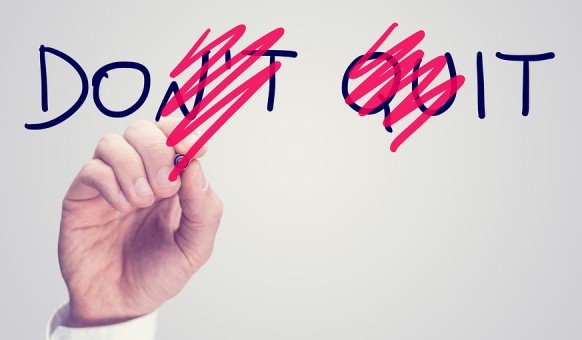It baffles me. Making any kind of behavioral change is really hard. Even when we know we will reap huge benefits by changing habits, we are geniuses at inventing reasons to not change.
It doesn’t matter if it’s quitting smoking or losing weight or saving money. We have mental urges to maintain the status quo. We fall back on a set of beliefs that triggers denial, resistance, and self-delusion.
Executive coach Marshall Goldsmith writes about this “self talk” in his book Triggers: Creating Behavior That Lasts–Becoming the Person You Want to Be (Crown Business, May 2015).
- If I understand, I will do.
- If have strong willpower, I won’t give in to temptation.
- Today is special, it just won’t count.
- “At least I’m better than…”
- I shouldn’t need help and structure.
- I won’t get tired or depleted; my enthusiasm won’t fade.
- I have all the time in the world.
- I won’t get distracted and nothing unexpected will occur.
- An epiphany will happen and suddenly change my life.
- My change will be permanent and I’ll never have to worry again.
- My elimination of old problems will not bring on new problems.
- My efforts will be fairly rewarded.
- No one is paying attention to me.
- If I change I am “inauthentic.”
- I have the wisdom to assess my own behavior.
Faulty Self-Evaluation
While we believe other people consistently overrate themselves, we think our own self-assessment is fair and accurate, even in the face of evidence that shows we’re entrapped by overconfidence, stubbornness, wishful thinking, confusion, resentment, and procrastination.
If that weren’t enough, we underestimate two of the biggest obstacles to change:
- We don’t take into account how much energy levels vary during the day or recognize that depletion of energy brings loss of self-control. It’s easier to just say “no” early in the day than late at night.
- We forget to factor in the strong pull of external triggers in the environment that pop up unexpectedly to throw us off track. We don’t prepare for these obstacles, and once we give in, we give up.
Studies show that humans easily distort information when it comes to making decisions and judgments. Biases in judgment or decision-making can result from motivation, such as when beliefs are distorted by wishful thinking.
This is why so many of people work with a coach when attempting to make behavioral changes: a coach can point out your biases and faulty judgments that prevent change.
What’s been your experience with change? I’d love to hear from you. I can be reached here or on LinkedIn.

Did You Enjoy This Article?
Join thousands of other smart business owners like yourself & get our Proffittable Times newsletter.
It's filled with actionable content you can apply immediately.
Sign up now to get started!
– Coach Nancy










